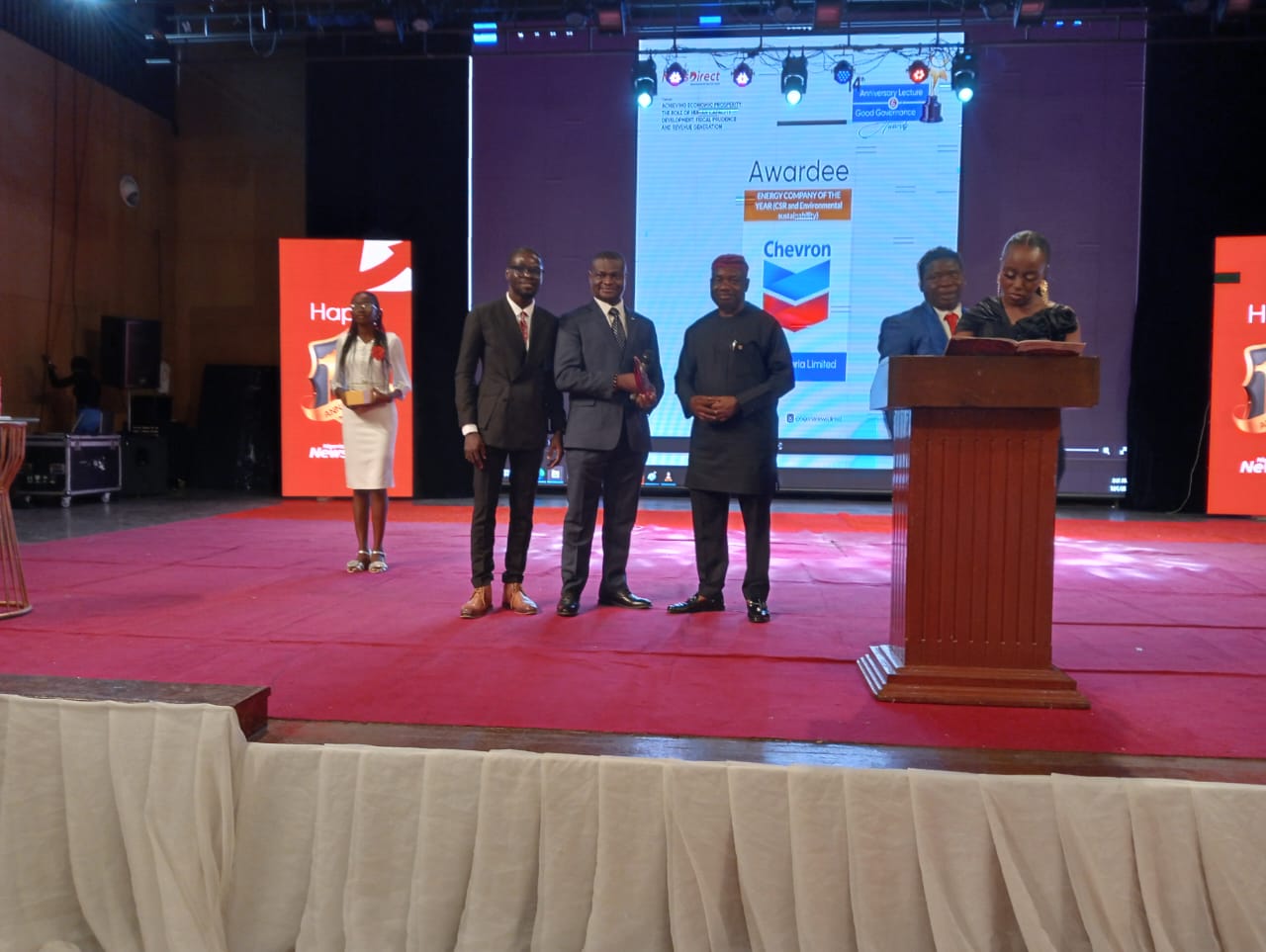Energy
5 million people targeted by ZimFund-financed energy project in Zimbabwe

TUNIS – The Board of the African Development Bank (AfDB) approved on Friday, December 20 the Emergency Power Infrastructure Rehabilitation Project Phase II (EPIRP II) in Zimbabwe.
The financing comes in the form of a US $17.52-million grant from the Zimbabwe Multi-Donor Trust Fund (ZimFund) housed in the AfDB.
The objective of EPIRP is to improve the availability and reliability of electricity supply through the rehabilitation of generation, transmission and distribution facilities. This involves specifically the electricity supply to critical social infrastructure facilities and to the inhabitants of the seven targeted areas of Zimbabwe – Kwekwe, Gweru, Bulawayo, Masvingo, Mutare, Harare and Hwange. Together these areas have a combined population of 5 million people.
“The EPIRP II is the second energy-sector project financed through the AfDB-administered Zimbabwe Multi-Donor Trust Fund,” explained Alex Rugamba, Director of the AfDB’s Energy, Environment and Climate Change Department. “We chose to support this project because it is in line with Bank Group’s Strategy for 2013-2022, which emphasizes infrastructure development for inclusive economic growth, including green growth; but also because it aligns with our new Energy Policy, whose objectives include supporting regional member countries to provide modern, affordable and reliable energy services to their populations and productive sectors,” he added.
Phase I of the EPIRP was designed to improve the provision of adequate and reliable electricity in an environmentally sound manner. This will happen through the rehabilitation of the Ash Handling Plant at the Hwange Power Station and the power transmission and distribution facilities in the country. Phase II is designed to further the benefits gained under Phase I interventions and to address issues that are not covered in Phase I. When complete, Phase II will enable full utilization of national produced capacity through restoration of transformer capacity. Utilized installed capacity will rise from 1,237 MW in 2013 to 1,960 MW by 2016 – with due attention to environmental safety and protection.
The key outputs of EPIRP II include: (i) rehabilitated transmission and distribution networks (repaired and replaced cables, overhead lines and transformers and their related accessories); and (ii) rehabilitated or refurbished systems at Hwange Power Plant comprising the Ash Dam for Stage I and Stage II; the Dust Suppression Plant for coal including the Handling Plant of Stage I and Stage II; the Dirty Drain System for Stage I and Stage II; and a replaced Vacuum Cleaning Plant for Stage I and Stage II. The estimated cost of the entire project is US $32.94 million – US $15.42 million for Stage I and US $17.52 million for Stage II. It is expected that Stage I of the Project will be completed by May 2016.
The Hwange Power Plant will have improved environmental quality conditions as a result of the Phase II Project. The target beneficiaries – the general public, industries and institutions – will benefit from increased firm substation capacity, more available and reliable electricity, reduced load shedding, more stable water supplies and the ability to ramp up operating capacity for industry. The percentage of customers with access to firm transformer capacity at transmission level should increase from 32 per cent in 2013 to 63.5 per cent in 2016. This will translate into both economic and social benefits as a result of reduced power outages due to transformer faults.
The political and economic situation in Zimbabwe for the last decade has severely affected all sectors of the economy, including infrastructure. In this regard, the AfDB has identified the rehabilitation of key power sector assets as the fastest and least-costly option for restoring the country’s capacity to increase electricity supply to meet part of the current demand and enhance system stability.
Energy
Dangote Partnership: MRS Urges Nigerians To Insist On N935/Litre Petrol Price Nationwide

MRS Oil Nigeria Plc, a prominent player in the Nigerian downstream oil industry, has implemented a new petrol price of N935 per litre across all its retail service stations nationwide.
The company has also called on Nigerians to monitor and report any outlets that fail to adhere to the new price structure.
Biztellers reports that this is consequent upon an announcement by the President of Dangote Industries Limited, Aliko Dangote, that the Dangote Petroleum Refinery has partnered with MRS Oil and Gas to offer petrol at N935 per litre at retail outlets, following a reduction in the ex-depot price from N970 to N899.50 per litre.
ALSO READ: Dangote Slashes PMS Price To N899.50k
It was gathered that MRS Oil Nigeria Plc has instructed all its outlets to implement the new price immediately, setting up a digital platform and monitoring team to ensure full compliance.
In a statement on Monday night, the company declared, “Petrol is now being sold at N935 at MRS Filling Stations nationwide. If you find any station not following this price, please report it. Call 08009447853 or email: NG-FMKPMGWHISTLEBLOWING@NG.KPMG.COM”
Emphasising the eco-friendly nature of its products, MRS Oil added, “We call on all petrol station owners to join MRS Oil Nigeria Plc in improving the supply chain of our beloved country, ensuring product quality and availability in every corner of Nigeria for the benefit of all Nigerians.”
In Lagos, commuters were seen queuing at MRS filling stations to purchase petrol, with many expressing their gratitude to the Dangote Petroleum Refinery and MRS Oil and Gas, urging other marketers to support the indigenous refinery rather than import off-spec products into the country.
A commuter at the MRS station at Alapere on the Lagos Ibadan Express way, Ibukun Phillips, could not hide her joy as her husband filled up their car.
“I am very happy today. This is a victory for Nigeria,” she said. “The price reduction is the best gift of the season. But beyond just the reduction, we are buying standard, eco-friendly petrol at a lower rate. My husband and I have decided we will only be using MRS from now on because we are confident in the quality of the product and supporting the economy.”
A commercial bus driver, Adio Ajibade described the price reduction as a great relief, especially during the festive season.
“The reduction is a great relief. It will reduce transportation costs and benefit Nigerians. God will continue to bless Alhaji Aliko Dangote,” he said.
A public affairs analyst and university lecturer, Dr. Tunde Akanni, said the collaboration between Dangote Petroleum Refinery and MRS Oil represents a significant step towards improving the affordability, quality, and sustainability of petroleum products in Nigeria.
According to Dr. Akanni, “this move will not only help ease the financial burden on Nigerians but also promote a more environmentally conscious approach to fuel consumption, benefitting both the economy and public health in the long term.”
Energy
FDI: Shell To Invest Billions Of Dollars On Nigeria’s Bonga North Oil Field

As a direct implication of the Federal Government’s Foreign Direct Investment drive, the Royal Dutch Shell has completed the final investment decision on the deep offshore Bonga North project in Nigeria.
Biztellers reports that the Bonga North will be a subsea tie-back to the Shell-operated Bonga Floating Production Storage and Offloading (FPSO) facility which Shell operates with a 55% interest.
Shell’s Integrated Gas and Upstream Director, Zoë Yujnovich, said, “This is another significant investment, which will help us to maintain stable liquids production from our advantaged Upstream portfolio”.
ALSO READ: OGUNCCIMA Commends Dangote Refinery’s Impact
It was gathered that the Bonga North project involves drilling, completing, and starting up 16 wells (8 production and 8 water injection wells), modifications to the existing Bonga Main FPSO and the installation of new subsea hardware tied back to the FPSO.
The company is optimistic that the project will sustain oil and gas production at the Bonga facility.
The Bonga North currently has an estimated recoverable resource volume of more than 300 million barrels of oil equivalent (boe) and will reach a peak production of 110,000 barrels of oil a day, with first oil anticipated by the end of the decade.
In addition, the Bonga North will help ensure Shell’s leading Integrated Gas and Upstream business continues to drive cash generation into the next decade.
Energy
Chevron Nigeria Bags ‘Energy Company Of The Year For Environmental Sustainability And CSR

Chevron Nigeria Limited (CNL), has received an award as “Energy company of the year (2024)” for its Environmental Sustainability and Corporate Responsibility accomplishments.
The award presented by the Nigerian News Direct newspaper, on Friday December 6, 2024, and was received by Manager Communications, Chevron Nigeria and Mid-Africa Business Unit, Victor Anyaegbudike, at a colourful event at the Grand Ballroom of the Oriental Hotel, Lagos.
ALSO READ: Stakeholders Hail NCDMB As Local Content Level Hits 56%
The organizers of the award noted that Chevron has implemented the “Protecting People and the Environment” policy, which aims at preventing injuries, illnesses, and environmental incidents. They also referenced that the company has achieved 97% gas flaring reduction in its operations in Nigeria, while implementing waste management and environmental conservation programs.
According to the media organization, Chevron Nigeria has also invested millions of dollars in community development programs, supporting education, health and economic development initiatives that have benefited thousands of people, while ensuring diversity, inclusion, and employee engagement in its business operations.
Receiving the award from the Lagos State Commissioner for Information and Strategy, Gbenga Omotosho, Anyaegbudike thanked the organizers for the honour, and reiterated Chevron’s commitment to continue to develop, affordable, reliable and ever-cleaner energy that enables human progress around the world.















